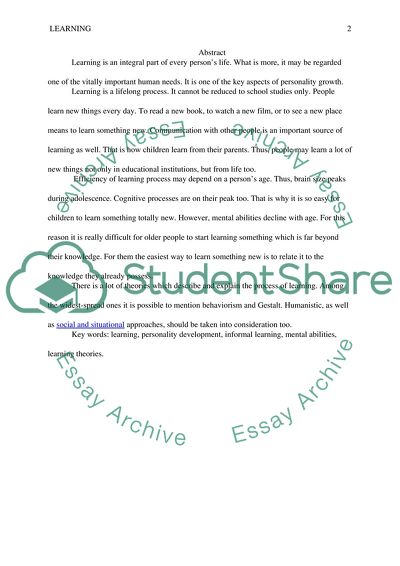Cite this document
(Learning as a Lifelong Process Term Paper Example | Topics and Well Written Essays - 2500 words, n.d.)
Learning as a Lifelong Process Term Paper Example | Topics and Well Written Essays - 2500 words. https://studentshare.org/education/1864724-research-paper-focused-on-either-learning-or-cognition
Learning as a Lifelong Process Term Paper Example | Topics and Well Written Essays - 2500 words. https://studentshare.org/education/1864724-research-paper-focused-on-either-learning-or-cognition
(Learning As a Lifelong Process Term Paper Example | Topics and Well Written Essays - 2500 Words)
Learning As a Lifelong Process Term Paper Example | Topics and Well Written Essays - 2500 Words. https://studentshare.org/education/1864724-research-paper-focused-on-either-learning-or-cognition.
Learning As a Lifelong Process Term Paper Example | Topics and Well Written Essays - 2500 Words. https://studentshare.org/education/1864724-research-paper-focused-on-either-learning-or-cognition.
“Learning As a Lifelong Process Term Paper Example | Topics and Well Written Essays - 2500 Words”. https://studentshare.org/education/1864724-research-paper-focused-on-either-learning-or-cognition.


